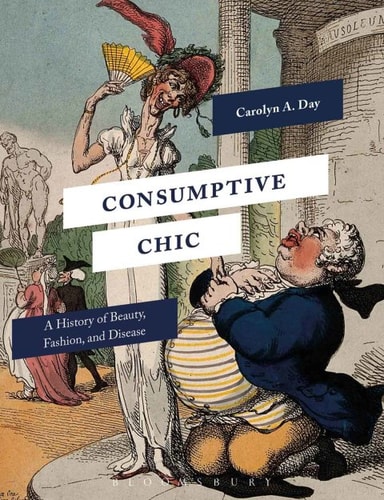Millions of Books, Authors and Publishers to discover. Explore now.
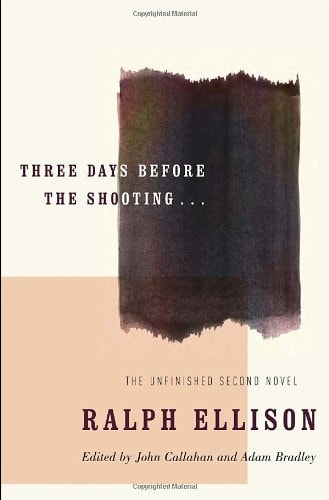




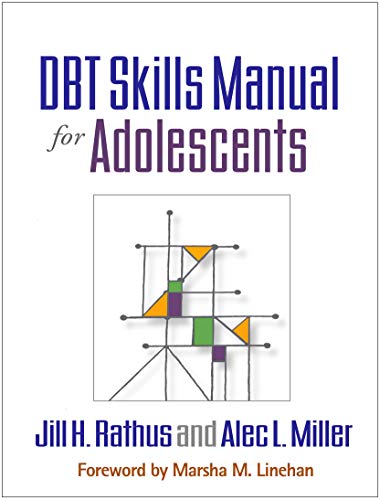
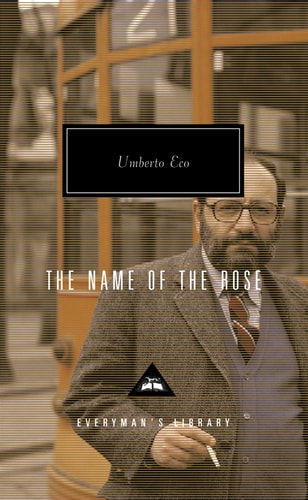







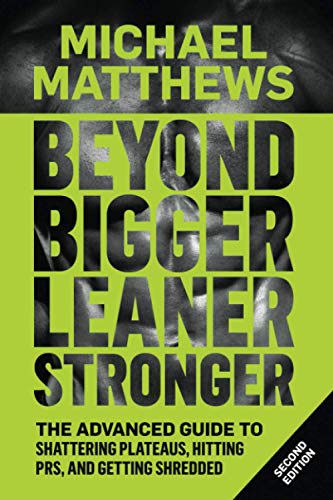




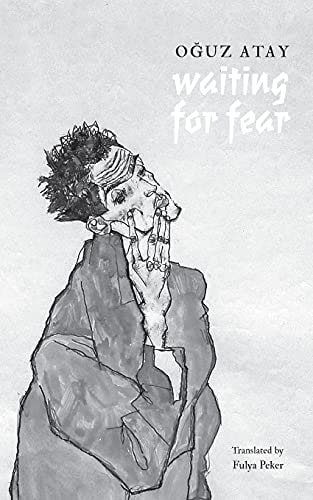
One Sentence Summary: The 7 Habits Of Highly Effective People teaches you both personal and professional effectiveness by changing your view of how the world works and giving you 7 habits, which, if adopted well, will lead you to immense success. This book has sold over 25 million copies. If Stephen R. Covey had any clue about what a success The 7 Habits of Highly Effective People would be when he published it in 1990, but, even several years after his death, it’s still the bible of leadership and modern management. The original seven habits are: 1. Be Proactive 2. Begin with the End in Mind 3. Put First Things First 4. Think Win-Win 5. Seek First to Understand, Then to Be Understood 6. Synergize 7. Sharpen the Saw The first three serve your own independence, so that you may “win in private,” as Covey put it. The second three aim to shift your focus to interdependence. When you strive for cooperation instead of competition, you’ll also “win in public” and find worldly success. The last habit serves your own renewal so that you’ll never burn out or overextend yourself. Let’s look at the following 3 in more detail: 1. Do the funeral test. 2. Learn how to say no. 3. Practice active listening. Time to learn how to become highly effective both at work and in life! Lesson 1: Do the funeral test. This is the habit that Covey calls “Begin with the End in Mind”. He issues a warning that plowing away and getting a massive amount of tasks done in a preferably short time (i.e. being efficient) is only useful when you’re plowing in the right direction. The classic analogy here is the ladder you’re climbing furiously, only to find out it’s leaned against the wrong wall when reaching the top. Only if you’re clear about your major, long- term goals can you align each and every single one of your decisions with them. The best way, by far, to get clear about those goals is to do the funeral test. Ask yourself: 1. What do I want people to say about me at my funeral? 2. As what sort of person do I want to be remembered? 3. For what do I want to be remembered? Depending on your number of relationships (family, friends, clients, partners, customers), you can also ask yourself how many people will be there to mourn your death. As Steve Jobs said: “All external expectations, all pride, all fear of embarrassment or failure–these things just fall away in the face of death, leaving only what is truly important.” Truthfully answering those questions will make you realize you might not want that out-of- the-suitcase, business class lifestyle, or that really all you ever wanted to do was dance . So be bold and ask them. Lesson 2: Learn how to say no. Knowing exactly where you want to go makes it easy to find out what’s important to you, and what not. When you know your final goal, you’ll at least have an inclination for each to-do on how important it actually is. You’ll often find that the important things aren’t urgent and vice versa . That means some things don’t deserve to be done at all. To all those things, you’ll eventually have to say no. It’s not easy, especially if money’s involved. But, as Covey says: “Put First Things First.” Sometimes, tempting rewards will be dangled right in front of you, which is when it’s time to pull out the funeral test again to see whether those rewards deserve to be chased. Derek Sivers in this regard, who says it’s either a hell yeah, or a no . He’s incredibly focused on a few things , but those things create all the meaning he needs in his life. Lesson 3: Practice active listening. The good thing about saying no to doing a lot of things is being able to spend a lot more time actually listening to others. 1. You’re listening to understand the person you’re listening to, not primarily to give advice or respond. 2. You make sure you understand by repeating back to them what they said and mirroring their emotions. 3. You help them structure their own thought process. This was one of the Covey calls this “Seek First to Understand, Then to Be Understood.” It is a call to practice active listening and empathy. Just like you get suspicious of your doctor when he prescribes you hefty antibiotics after hearing you cough just once, we don’t tend to trust people, who we think don’t really understand us. Make an effort to listen to understand, instead of listening to respond. A good way to start this practice is by simply talking less . The 7 Habits of Highly Effective People is an absolute classic. It’s not a step-by-step how-to book, however. The lessons will take you a while to implement since they are general principles. But that also means they’re timeless and have a powerful impact once you manage to do so.
For Book DetailThe Subtle Art Of Not Giving A F*ck One Sentence-Summary: The Subtle Art Of Not Giving A F*ck does away with the positive psychology craze to instead give you a Stoic life that might not always be happy, but meaningful and centered only around what’s important to you. Favorite quote from the author: “Who you are is defined by what you’re willing to struggle for.” The Subtle Art Of Not Giving A F*ck , Mark Manson’s first “proper” book, this instant New York Times bestseller is a no BS self-help book for people who usually hate self-help. Mark Manson gets that life has become overwhelming and the only way to find our center around the things that really matter to us is to not give a f*ck about anything else. Here are 3 favorite lessons: 1. Values you can’t control are bad values to follow. 2. Don’t believe you know anything with certainty, for it keeps you from improving. 3. Trying to leave a legacy might ruin your life. The trick of not giving a fuck about most things is that you’ll be able to give one about what really matters to you. The Subtle Art Of Not Giving A F*ck Summary Lesson 1: Only hold values you control. Mark is a very Stoic guy and it shines through his writing and advice. A common idea in Stoicism is to focus only on the things you can control . This is easy enough to understand and implement when it comes to your actions, but it can be applied to more intangible aspects of your life as well. Take your values, for example. I know it’s hard to put them into words, but if you try to describe yourself in, say, three adjectives, you already have a good idea of which values most dictate your life. Let’s say you chose the words honest, punctual and popular. Here’s where Mark makes an interesting remark: Only choose to have values you can control. Most of us give up some of our ideals as we grow up, try to have a career and make money. While that’s just part of real life, it’s important you don’t hand off the steering wheel altogether. Values you don’t control are bad, because they’ll be a constant source of unnecessary suffering in your life. When we look at the three we just mentioned, honesty is 100% in your control. Only you know how honest you are, but no one else needs to. Punctuality is partially in your control. If you always leave with plenty of buffer time, you can compensate for most potential obstacles. Popularity, however, is totally out of your grasp. Sure, you can be nice and friendly to everyone, but you can’t control other peoples’ opinions. Some will always hate you, no matter what you do . Therefore, popularity isn’t the best value to focus on and you could try replacing it with one more controllable, such as kindness. Lesson 2: Certainty hampers growth. What a great principle distilled into just three words: certainty hampers growth. Imagine you could choose between two modes of moving through the world: one in which you think everything you know is 100% true and one in which you think nothing you know is 100% true. Both are stressful, but which one do you think would help you make better decisions? The latter, of course. While there’s some middle ground to be found here, rejecting the idea that you know anything for sure is a great base to start learning from. This is true for discovering factual knowledge , such as using the scientific method to build business hypotheses helps arrive at better conclusions, but it is also true for gaining conceptual knowledge . The second kind is more implicit knowledge about the relationships between various entities. Let’s take your place in the social hierarchy at school, for example. If you’re convinced you’re ugly, you’ll be sad a lot. But if you notice that you get lots of compliments at school, people call you charming and some have a crush on you, that’s evidence your brain is playing you with false certainty. If you allow yourself to have a little doubt, you can then disprove this limiting belief you hold about yourself. Lesson 3: Don’t obsess about leaving a legacy. Here’s an uncomfortable, but important reminder: You’re going to die one day. We all are. Whether we admit it or not, when the time comes closer, we’re all scared. That’s why many of us want to leave a legacy , myself included. However, Mark says that might ruin our short amount of precious time here on earth. The more we’re driven to build a great body of work, the more start chasing fame, working too much and focusing on the future. What if instead, we just tried to be useful in the present? We could still help a ton of people, enjoy our days and fully be here, while we’re here. Mark’s stance is clear: Find ways to bring yourself, your loved ones and the people you meet joy in the now and let the legacy part take care of itself.
For Book DetailOne Sentence-Summary: Ikigai explains how you can live a longer and happier life by having a purpose, eating healthy, and not retiring. Favorite quote from the author: “Essentials to happiness in this life are something to do, something to love, and something to hope for.” Do you want to live a long life? How about a happy one? What if you could have both? The secret to a long life actually comes from finding joy and purpose every day. Most of us think of these ideals as mere dreams that only a select few achieve. The people of Japan, however, have practiced ikigai, their “reason to live,” for centuries. It helps them live longer, more joyful lives. This practice is what makes Japan part of the five Blue Zones of the world where people live the longest. Many people find themselves trapped in the never-ending need to do everything faster, better, and harder. In contrast, discovering your ikigai will help you slow down and enjoy life more. Identifying your life’s purpose will also help you live longer. Hector Puigcerver, author of Ikigai: The Japanese Secret to a Long and Happy Life , is a native European who moved to Japan in 2004 and became enamored with Japanese culture. In this book, he breaks down how we can use ikigai to live better. These are 3 favorite lessons from his work: 1. Having a purpose is a vital component of longevity and happiness. 2. If you want to live a long life, follow the advice of some of the oldest people in the world. 3. To stay healthy throughout your life, make sure that you are moving enough. Lesson 1: If you want to be happy and live longer, discover your ikigai – a reason to wake up in the morning. Okinawa, Japan is home to some of the longest-living people in the world. Their secret is ikigai. The Japanese word has two characters: ‘iki’ which means life, and ‘gai,’ or value. Finding your ikigai can be as simple as asking four basic questions: 1. What are your strengths? Think of what you do better than everyone else. 2. What does the world need? Imagine something you see that the world lacks. 3. What are your passions? Picture the things that you could do all day without stopping. 4. What can you earn a living doing? You have to make money from your craft, so how can you do that? Your ikigai might take you a short time to discover, or it could take much longer. Once you find it, however, you may realize that you never want or need to retire. Aside from being made up by the Germans , retirement is associated with an increased risk for many health problems . Searching your ikigai is the perfect way to never retire and thus avoid deteriorating faster in your old age. However, your ikigai doesn’t have to be connected to your job. Your purpose may come from a hobby or your family relationships. Do whatever you find gets you up in the morning, just make sure that you never give it up. Okinawans forced into retirement continue to stay active with their hobbies and in their community, which helps them live longer. Research has shown that the elderly people of Okinawa have remarkably lower rates of dementia and heart disease as a result of their purpose and activity level. Lesson 2: Okinawan elders know a thing or two about well-being, and we should follow their advice if we want to live as long as they do. Seniors have so much wisdom to share with the world from their years of experience. Those of us that are young might sometimes pretend like we know everything, but we should learn a thing or two about life from the generations before us. One tip from Okinawan centenarians is to worry as little as possible . It helps to slow down, take your time, and realize that you don’t have to have it all figured out right away. Anxiety has a myriad of negative health effects . Focus on enjoying life for what you have, instead of being afraid of what might go wrong. A great way to do this is to connect with everyone around you, even strangers. Okinawan old-timers suggest smiling and having an open-heart towards everybody you meet. Your friendliness will help you develop many friendships throughout life. Okinawan elders recommend maintaining those relationships as well. When you become a grandparent your replacement of worry with friends may also help your grandchildren visit more often. Japanese centenarians also endorse eating healthy, waking up early, and making sure you have enough movement throughout your day. Lesson 3: A key component of staying healthy is to keep moving throughout the day, no matter how little. Residents of Okinawa suggest that you don’t always need to play a sport or go running to be healthy. Longevity and health are more about finding simple, consistent ways to move more through the day. Intensity may deter consistency, so Okinawans strive for simplicity in their forms of exercise. A walk around the neighborhood, day in the garden, or singing karaoke are just a few simple ways they maintain movement frequently. Radio Taiso, a Japanese radio show, has helped Okinawans exercise for years. Large groups of Japanese tune into the station and listen to directions on how to exercise. In the present day, most watch online or on the television, but the show still continues throughout the day in Japan. With simple exercises, like lifting your arms above your head and bringing them down again, Radio Taiso is an easy to repeat form of exercise for the Japanese. Whether you find an exercise program like that or not, always make time for small, consistent amounts of movement in your day. Ikigai is an incredible concept that can benefit many people. Whether you feel stuck in your job, want to live longer, or just desire a deeper level of happiness and meaning, finding your reason to live will help you.
For Book DetailOne Sentence-Summary: Rich Dad Poor Dad tells the story of a boy with two fathers, one rich, one poor, to help you develop the mindset and financial knowledge you need to build a life of wealth and freedom. Favorite quote from the author: “The main reason that over 90 percent of the American public struggles financially is because they play not to lose.” Rich Dad Poor Dad is a modern classic of personal finance and favorite finance book of all time. Although the book is controversial and often takes criticism, people still believe it’s worth reading. Otherwise, it wouldn’t have sold over 32 million copies. Robert Kiyosaki tells the story of his two Dad’s in his childhood. His own father and the father of his best friend. While he speaks affectionately of both, they were very different when it came to dealing with finances. Rich Dad Poor Dad Summary Many of us are too afraid of being branded as a weirdo, in order to exit the rat race . We let the two main emotions everyone has around money dominate our decisions: fear and greed. That’s why we still stick to the outdated mantra “Go to school, go to college, get a job, play it safe.” when in reality no job is safe any more . For example, when you get a raise at your job, a wise choice would be to invest the extra money. Put it into something that builds wealth like stocks or bonds, which has risk, but a lot of potential. Maybe you find a good fund with a 60% chance to double your money within a year, but a 40% chance of losing it all. However, most likely your fear of losing the money altogether will keep you from doing so. But when your greed takes over, you might then spend the extra money on an improved lifestyle. You might buy a fancy new car, and the payments eat up the money, for instance. This way you’re almost certain to lose 100%. This already gives you a glimpse of how important it is to educate yourself financially. Since we receive no financial education in school or college, sadly, this is entirely up to you. Look around and you’ll see plenty of financially ignorant people in your own life. Just take a look at local politicians. Is their city in debt? Your mayor might be great, but unfortunately, he probably doesn’t know how to deal with money. For the same reason 38% of Americans don’t save anything for their retirement. The only way for you to counteract this is to start now. Today is the youngest you’ll ever be, so take a close look at what you can and can’t afford. This way you’ll be able to set realistic financial goals, even if it means waiting for that shiny new BMW. Next, adopt the mindset of “work to learn” instead of “work to earn”. Take a job in a field you have no clue about, such as sales, customer service or communications, to develop new skills – you never know what they might be good for . Set aside 5% of your income each month to buy books, courses and attend seminars on personal finance to start building your financial IQ. The first step toward building wealth lies in the mindset of managing risks instead of avoiding them. Also, learn about investments to understand that it’s better to not play it safe because you’ll miss big potential rewards. Don’t start big, just set aside a small amount, like $1,000 or even $100, and invest it in stocks, bonds, or even tax lien certificates . Treat the money as if it’s gone forever and you’ll worry less about losing it. As soon as you start your journey towards wealth, you’ll realize that it’ll be quite a long one. That’s why it’s important to stay motivated. Kiyosaki suggests creating an “I want” and an “I don’t want” list. Include items like: “I want to retire at age 50.” or “I don’t want to end up like my broke uncle.” Another idea is to pay yourself first each month. Take the portion of your salary you want to spend on stocks or your financial education, invest it, and pay your bills afterward. It’ll create pressure to be creative in making money and show you what you can afford. Use your money to acquire assets instead of liabilities. Assets are stocks, bonds, real estate that you rent out, royalties (for example from music ) and anything that generates money and increases in value over time. Liabilities can be cars with monthly payments, a house with a mortgage, and of course debt. Anything that takes money out of your pocket each month is a liability. There’s no rush. Just stay at your full time job and “mind your own business”. In this case, your job is what pays the bills and your business is what makes you wealthy. Build your business on the side and use it to invest in assets until your assets eventually become the main source of your income. You can even file a corporation to be taxed only after you’ve earned and invested, instead of being taxed before investing as an employee and trying to live off what’s left. The most important thing is that you start today. You are your own biggest asset, so the first thing you should put some money into is yourself.
For Book Detail
![[The Prague Cemetery] (English and Korean Edition)](../upload_book_cover/63842BR_686cec51e13216191.jpg)









